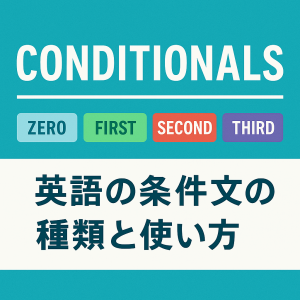
英語の条件文(conditionals)は if を中心に、可能性の度合いによって使い分けます。 本記事では「ゼロ・第一・第二・第三・混合(mixed)」までを 形・意味・例文で一気に整理。 さらに unless / in case / if vs when / 仮定法の倒置 まで、実務と試験に効くポイントをカバーします。
まずは要点(結論)
- 現実度が高いほど「現在形/未来助動詞」を使い、低いほど「過去形/過去完了形(仮定法)」を使う。
- if 節の中に未来形 will は置かない(例外:意志/依頼の will)。
- 結論を急ぐなら:ゼロ=習慣・事実/第一=起こり得る未来/第二=今の非現実/第三=過去の非現実。
条件文の種類と形(早見表)
| 種類 | if 節(条件) | 主節(結果) | 意味・用法 | 例文 |
|---|---|---|---|---|
| ゼロ Zero |
現在形 | 現在形 | 一般的事実・習慣 | If you heat ice, it melts. |
| 第一 First |
現在形 | will + 動詞 / 命令 / can | 現実的な未来の可能性 | If it rains, we will stay home. |
| 第二 Second |
過去形(be は were) | would / could / might + 動詞 | 今の非現実・仮定 | If I were you, I would wait. |
| 第三 Third |
過去完了(had + pp) | would / could / might have + pp | 過去の非現実・後悔 | If she had left earlier, she would have caught the train. |
| 混合 Mixed |
過去完了 | would + 動詞 | 過去の事実 → 今の結果 | If I had studied law, I would be a lawyer now. |
ゼロ条件文(Zero Conditional)
科学法則・一般論・手順などの普遍的な結果を表す。
- If you press this button, the machine starts.
- When water reaches 100°C, it boils.(if の代わりに when も可)
第一条件文(First Conditional)
十分にあり得る未来について。if 節は現在形、主節は will/can/may など。
- If you finish early, you can go home.
- If I see her, I’ll tell her.
注意:if 節に未来形 will は通常不可。
例外(意志):If you will wait here, I’ll call him.(〜してくれるなら)
例外(意志):If you will wait here, I’ll call him.(〜してくれるなら)
第二条件文(Second Conditional)
現在の非現実/ありそうにない仮定。丁寧表現としても使える。
- If I were rich, I would buy a cottage.
- If you called later, that would be great.(丁寧依頼)
第三条件文(Third Conditional)
過去の非現実・後悔。「〜だったなら、〜していただろうに」。
- If they had booked in advance, they would have got better seats.
- If I had known, I might have helped.
混合条件文(Mixed Conditionals)
時制を混ぜて「過去の事実 → 今の結果」や「今の事実 → 過去の結果」を表す。
| タイプ | 形 | 意味 | 例文 |
|---|---|---|---|
| 過去→今 | If + had + pp … would + 動詞 | 過去に違えば、今こうだろう | If I had taken the job, I would live in Manchester now. |
| 今→過去 | If + 過去形 … would have + pp | 今こうなら、過去は違っていただろう | If she were taller, she would have joined the team. |
バリエーション:同じ意味でも表現いろいろ
1) unless(〜でない限り)
unless は「もし〜でなければ」。肯定/否定の対応に注意。
- We won’t start unless everyone is here.(=If everyone isn’t here, …)
2) in case(〜に備えて)
「〜するといけないから/〜に備えて」。予防的なニュアンス。
- Take an umbrella in case it rains.
3) if と when の違い
- if:起こるか不明。「もし〜なら」
- when:起こる前提。「〜したら(時)」
4) 仮定法の倒置(were / had / should)
- Were I you, I would decline.(= If I were you, …)
- Had I known, I would have called.(= If I had known, …)
- Should you need help, let me know.(= If you should need …)
句読点・文型:カンマの位置
- if 節が前:If it rains, we’ll stay in.(カンマが必要)
- if 節が後:We’ll stay in if it rains.(カンマ不要)
- 命令文:If you have any questions, contact us.
ミニ演習(答えつき)
- If you (heat) water to 100°C, it (boil). → heat / boils
- If it (rain) tomorrow, we (stay) home. → rains / will stay
- If I (be) you, I (not buy) it. → were / wouldn’t buy
- If she (leave) earlier, she (catch) the bus. → had left / would have caught
- If he (study) harder, he (pass) last year. → had studied / would have passed
よくある質問(FAQ)
- 第二条件文の if 節は was でもいい?
- 口語では if I was も見られますが、試験やフォーマルは if I were が無難。
- if 節の中で will を使えるときは?
- 意志・依頼・習慣の will なら可:If you will sign here, we can proceed.
- unless と if … not の違いは?
- 意味は近いですが、unless は「例外を除く」語感。入れ替えると不自然になる文もあります。
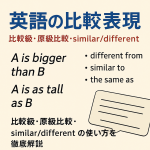


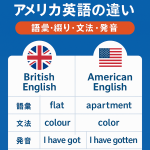
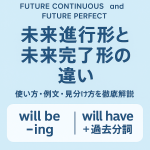
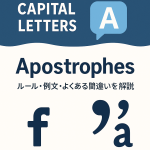



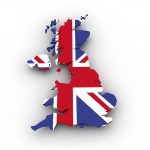
Comments